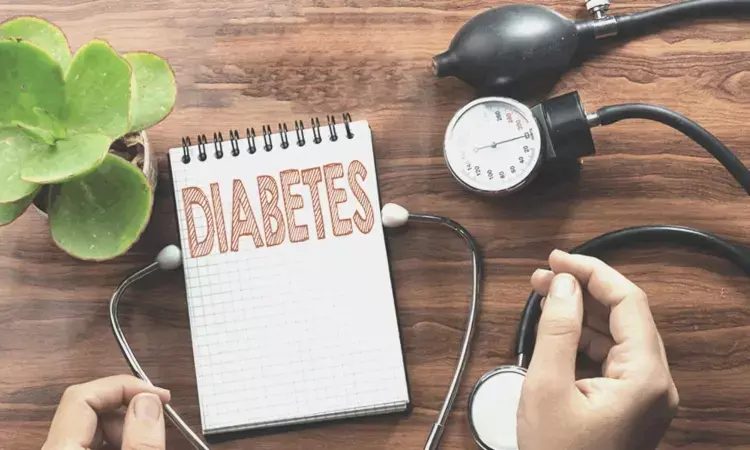- Home
- Medical news & Guidelines
- Anesthesiology
- Cardiology and CTVS
- Critical Care
- Dentistry
- Dermatology
- Diabetes and Endocrinology
- ENT
- Gastroenterology
- Medicine
- Nephrology
- Neurology
- Obstretics-Gynaecology
- Oncology
- Ophthalmology
- Orthopaedics
- Pediatrics-Neonatology
- Psychiatry
- Pulmonology
- Radiology
- Surgery
- Urology
- Laboratory Medicine
- Diet
- Nursing
- Paramedical
- Physiotherapy
- Health news
- Fact Check
- Bone Health Fact Check
- Brain Health Fact Check
- Cancer Related Fact Check
- Child Care Fact Check
- Dental and oral health fact check
- Diabetes and metabolic health fact check
- Diet and Nutrition Fact Check
- Eye and ENT Care Fact Check
- Fitness fact check
- Gut health fact check
- Heart health fact check
- Kidney health fact check
- Medical education fact check
- Men's health fact check
- Respiratory fact check
- Skin and hair care fact check
- Vaccine and Immunization fact check
- Women's health fact check
- AYUSH
- State News
- Andaman and Nicobar Islands
- Andhra Pradesh
- Arunachal Pradesh
- Assam
- Bihar
- Chandigarh
- Chattisgarh
- Dadra and Nagar Haveli
- Daman and Diu
- Delhi
- Goa
- Gujarat
- Haryana
- Himachal Pradesh
- Jammu & Kashmir
- Jharkhand
- Karnataka
- Kerala
- Ladakh
- Lakshadweep
- Madhya Pradesh
- Maharashtra
- Manipur
- Meghalaya
- Mizoram
- Nagaland
- Odisha
- Puducherry
- Punjab
- Rajasthan
- Sikkim
- Tamil Nadu
- Telangana
- Tripura
- Uttar Pradesh
- Uttrakhand
- West Bengal
- Medical Education
- Industry
Once-weekly insulin icodec bests insulin degludec for HbA1c control in diabetics: ONWARDS 2 phase 3a trial

Once-weekly insulin icodec exhibited superior reduction of HbA1C to the tune of 0.22% compared with insulin degludec in people with type 2 diabetes after 26 weeks of treatment, according to Novo Nordisk's phase IIIa ONWARDS 2 trial.
Novo Nordisk today announced headline results from the ONWARDS 2 trial, a phase 3a, 26-week efficacy and safety treat-to-target trial investigating once-weekly insulin icodec vs insulin degludec in 526 people with type 2 diabetes switching from daily insulin.
The trial achieved its primary endpoint of demonstrating non-inferiority in reducing HbA1c at week 26 with insulin icodec compared to insulin degludec.
From an overall baseline HbA1c of 8.13%, once-weekly insulin icodec achieved a superior reduction in estimated HbA1 c of 0.93% compared to 0.71% for insulin degludec (estimated treatment difference: -0.22%).
In the trial, there was no statistical difference in estimated hypoglycaemia rates, and no severe hypoglycaemia events were observed for people treated with insulin icodec. The rates of severe or clinically significant hypoglycaemia (blood glucose below 3 mmol/L) were 0.73 events per patient year exposed to once-weekly insulin icodec and 0.27 events per patient-year exposed to insulin degludec. In the trial, once-weekly insulin icodec appeared to have a safe and well-tolerated profile.
"We are very pleased with the results seen in ONWARDS 2, and once-weekly insulin icodec is the first insulin to demonstrate the ability to reduce the number of yearly basal insulin injections from 365 to 52 in a phase 3 trial", says Martin Holst Lange, executive vice president for Development at Novo Nordisk.
"Novo Nordisk has for 100 years been committed to develop insulin treatment to improve glycaemic outcome and reduce the disease burden for people living with diabetes and we are excited to share additional results of the ONWARDS programme later this year."
The ONWARDS clinical development programme for once-weekly insulin icodec currently comprises six phase 3a global clinical trials, including a trial with real-world elements, involving more than 4,000 adults with type 1 or type 2 diabetes.
Dr Kamal Kant Kohli-MBBS, DTCD- a chest specialist with more than 30 years of practice and a flair for writing clinical articles, Dr Kamal Kant Kohli joined Medical Dialogues as a Chief Editor of Medical News. Besides writing articles, as an editor, he proofreads and verifies all the medical content published on Medical Dialogues including those coming from journals, studies,medical conferences,guidelines etc. Email: drkohli@medicaldialogues.in. Contact no. 011-43720751


